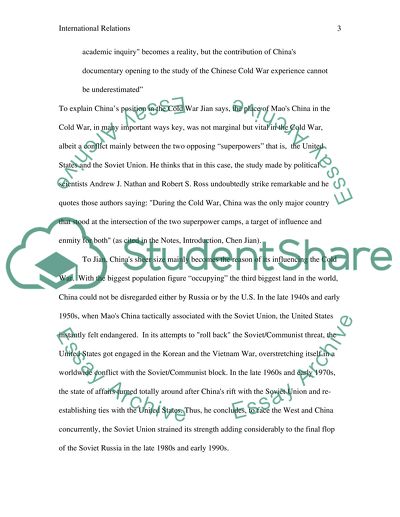Cite this document
(“China during the Cold War Period Book Report/Review”, n.d.)
China during the Cold War Period Book Report/Review. Retrieved from https://studentshare.org/miscellaneous/1501704-china-during-the-cold-war-period
China during the Cold War Period Book Report/Review. Retrieved from https://studentshare.org/miscellaneous/1501704-china-during-the-cold-war-period
(China During the Cold War Period Book Report/Review)
China During the Cold War Period Book Report/Review. https://studentshare.org/miscellaneous/1501704-china-during-the-cold-war-period.
China During the Cold War Period Book Report/Review. https://studentshare.org/miscellaneous/1501704-china-during-the-cold-war-period.
“China During the Cold War Period Book Report/Review”, n.d. https://studentshare.org/miscellaneous/1501704-china-during-the-cold-war-period.


